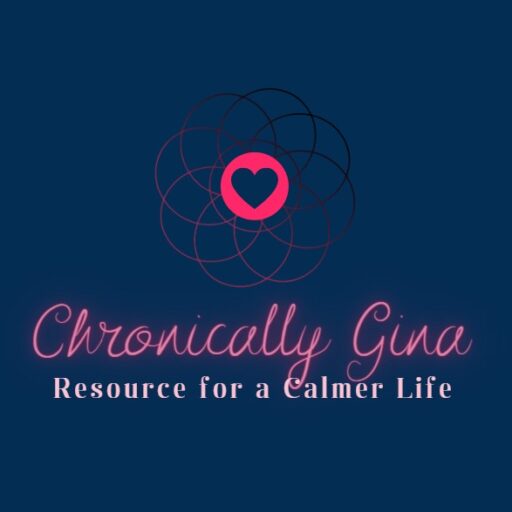Living With A Chronic Condition: Caring for Yourself
This post may contain editorial samples and/or affiliate links. We earn a commission on your sales.
Living with a chronic condition can feel like a struggle and a constant balancing act because you want to feel well but you don’t want to overdo it when you do. That can be tough, but there are plenty of great ways to make things easier on yourself that will ensure you can do all the things you want to do – within reason, of course. In the end, it’s all about understanding what you need, making time for what matters, and letting go of the things that don’t, and with that in mind, here’s a guide to help you feel good while managing long-term health conditions; read on to find out more.
3 Ways to Care for Yourself While Living with a Chronic Condition
Rest And Recovery Is Essential
When you’re living with a chronic condition, taking it easy can often be easier said than done, but it’s vital that you do it because you’ll feel so much better afterwards. What people often don’t realize is that rest and recovery isn’t just about getting enough good quality sleep (although that is vital), it’s also about building in time in your routine for downtime throughout the day so that you can go on to do whatever it is you’ve got planned without too much trouble.
What does that look like? Well, it could be any one (or more) or a whole load of things that include taking a power nap when you need one, standing up and moving around to stretch, turning off (or at least away from) your screen and doing something different, and so on. It really depends on how you feel and what you’re able to do, as well as what your body is asking you to do – you’ve got to listen and then you’ll be able to get the most out of any rest and recovery time you’ve got.

Get The Right Nutrition
A balanced diet doesn’t just support your physical health, but it can also boost your mood and generally make you feel more positive, and when you add all that together, it’s the perfect recipe for caring for yourself while living with a long-term condition. Since that’s the case, what about experimenting with different types of food that you might not have tried before? As long as you know what’s in them and they’re packed full of nutrients, they’re going to be a good choice, and you never know, you might find your new favorite dish.
To help you get to grips with what healthy food really means and what food is going to help you feel your best, the best solution is to cook at home – use colorful ingredients or find fun recipes to keep things interesting and once you find that certain foods work well for you, you can make them a much bigger part of your diet and help yourself feel better more of the time.
Find The Right Support
For those living with a specific condition, finding reliable support from experts can make all the difference, especially if that support is about not just managing your condition but treating it as well as possible too. The right professionals don’t just provide regular care, but they’ll also help you understand your condition more so you can help yourself when you’re not with them, and these things combined can be massively important.
That’s particularly the case if you’ve got a rare condition such as hemophilia A because finding support can be trickier – there are fewer people with the condition to reach out to. However, once you find the right experts, you’ll be able to live a much healthier, more fulfilled life thanks to treatment and guidance, so it’s vital to look for the help you need, no matter what your condition might be.

Add Gentle Movement To Your Day
Staying active is massively beneficial for your mood and wellbeing, but with a chronic condition it can be difficult to find the right level of activity because too much can be really damaging (and too little won’t do anything at all).
It might take some patience to work out how far you can go and what types of exercise are best for you, but it’s well worth the journey to get to the healthier destination. You could try things like a gentle walk, swimming, yoga, and so on – the point is if it makes you feel good and doesn’t make your condition worse and if it keeps you moving, then it’s the right thing for you. Remember that being consistent is much more important than how intense your exercise is, so just make sure you’re doing a little every day and you’ll see (and feel) and benefits.
When living with a chronic illness/pain it is important to keep track of your symptoms. Sign up for my newsletter to receive a pain evaluation checklist like what you fill out at the doctor’s office.
What is a considered a chronic condition?
A chronic condition is generally defined as a health condition or disease that is persistent, lasting for an extended period—usually more than three months. These conditions are often slow-progressing, long-lasting, and typically require ongoing management and treatment. They can range from mild to severe and can significantly impact daily life, even if symptoms vary over time.
Common chronic conditions include:
- Cardiovascular Diseases: Heart disease, hypertension (high blood pressure), and stroke.
- Diabetes: Both Type 1 and Type 2 diabetes.
- Respiratory Diseases: Conditions like asthma and chronic obstructive pulmonary disease (COPD).
- Arthritis and Joint Disorders: Osteoarthritis, rheumatoid arthritis, and other musculoskeletal disorders.
- Autoimmune Disorders: Such as lupus, multiple sclerosis, and celiac disease.
- Chronic Pain Conditions: Including fibromyalgia, chronic back pain, and migraines.
- Mental Health Conditions: Persistent mental health issues, such as depression, anxiety disorders, and bipolar disorder.
- Neurological Disorders: Epilepsy, Parkinson's disease, and Alzheimer’s disease.
- Digestive Disorders: Crohn’s disease, irritable bowel syndrome (IBS), and ulcerative colitis.
- Chronic Kidney Disease: Which may require dialysis or lead to kidney failure.
- Cancer: Many types of cancer are considered chronic because they often require long-term management.
These conditions often require lifestyle adjustments, ongoing treatments, regular check-ups, and sometimes medication to manage symptoms and prevent complications.
Follow Me On Social Media:








